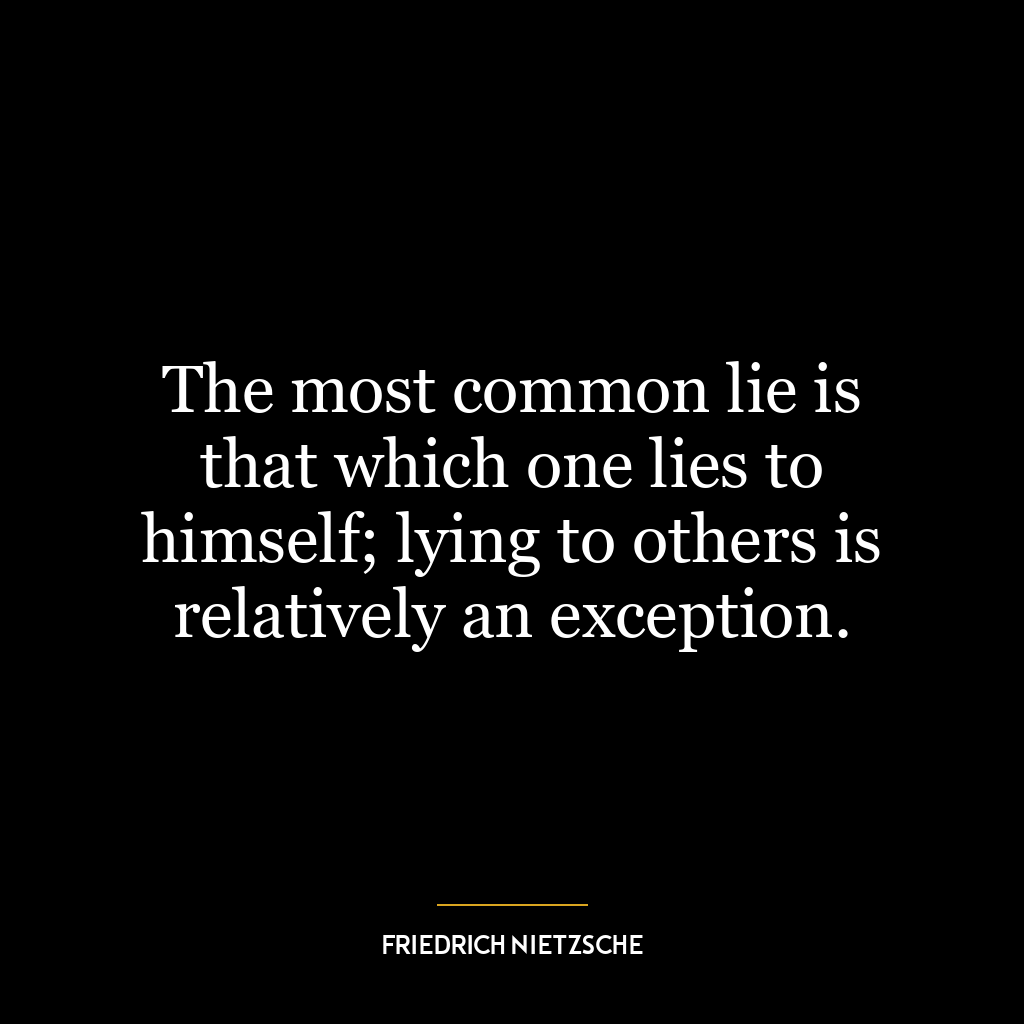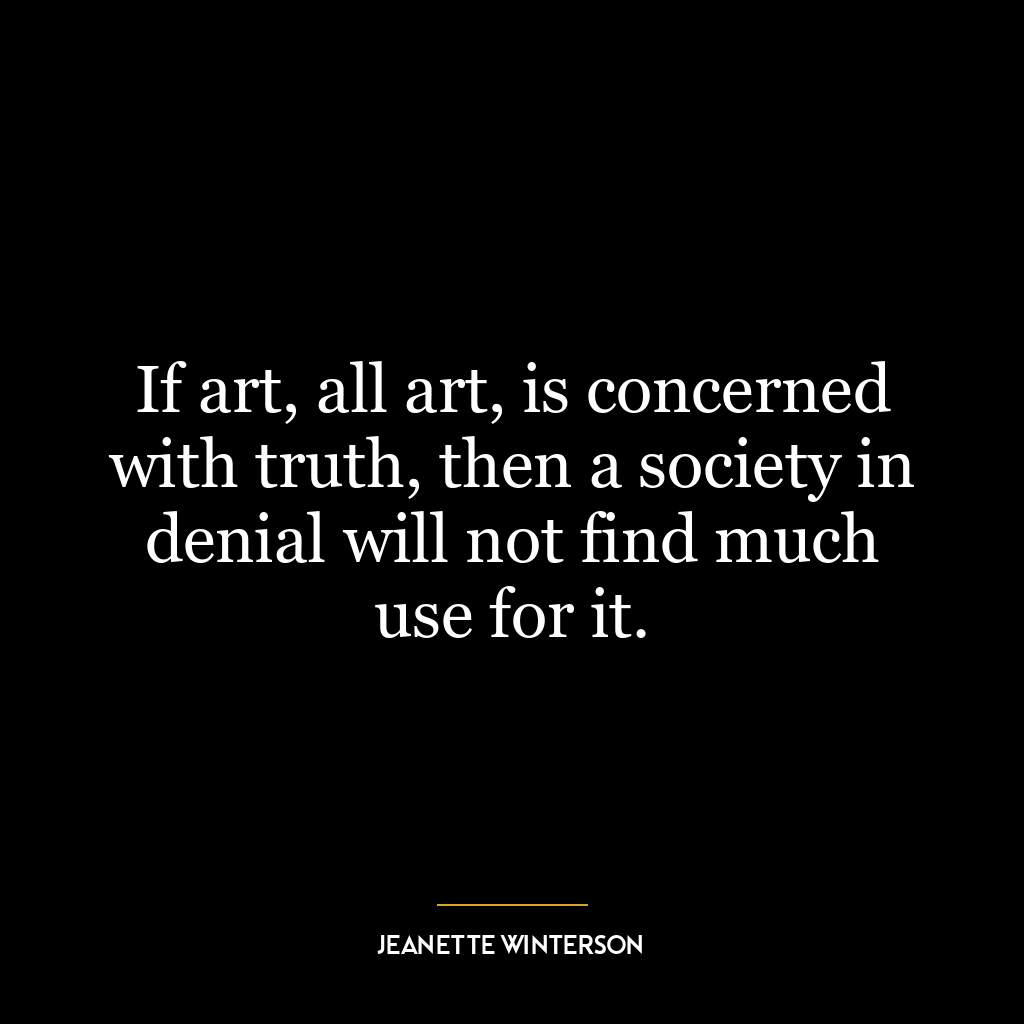The most common lie is that which one lies to himself; lying to others is relatively an exception.
This quote suggests that the most frequent form of dishonesty is not what we tell others, but what we tell ourselves. It’s about self-deception, the lies we tell ourselves to avoid confronting uncomfortable truths, to maintain our self-esteem, or to uphold a certain image of ourselves. In contrast, lying to others is suggested to be less frequent, thus considered an exception.
Self-deception can range from minor ego-boosting exaggerations to dangerous delusions. For instance, someone might convince themselves they are happy in an unfulfilling job, or that an unhealthy relationship is fine, to avoid the discomfort of change.
Applying this to personal development, it highlights the importance of self-honesty. To grow and improve, we must first be honest with ourselves about our flaws, mistakes, and areas for improvement. Only then can we begin to make meaningful changes.
In today’s world, this idea is particularly relevant given the prevalence of social media, where it’s easy to curate a perfect image of ourselves and our lives. This can lead to self-deception, as we may start to believe this curated image is our reality, avoiding the truths that contradict it. The quote serves as a reminder to be honest with ourselves, to confront our realities, and not to fall into the trap of self-deception.
In essence, the quote suggests that the hardest person to be honest with is often ourselves, and it’s a call to introspection and self-awareness. It’s a reminder that personal growth and authenticity begin with self-honesty, and that lying to ourselves is ultimately more damaging than lying to others.















